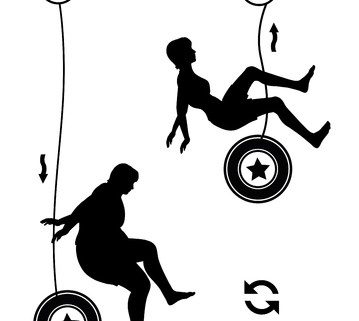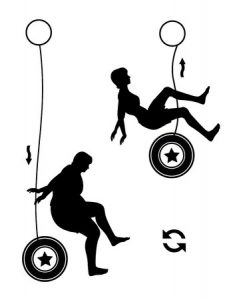Pop Culture Permeates Body Image
 In 1959 Barbie burst onto the scene, meant to be a symbol for young girls to look up to and hope to be like. However, throughout the years many mothers and advocates for woman’s issues complained about Barbie’s unrealistic proportions and the body image that it would represent to the impressionable young girls playing with her. Now images of unrealistic body types are hard to escape in our country. We are a nation obsessed with celebrity, and sometimes we forget that their lives are far from normal, and so are their body types.
In 1959 Barbie burst onto the scene, meant to be a symbol for young girls to look up to and hope to be like. However, throughout the years many mothers and advocates for woman’s issues complained about Barbie’s unrealistic proportions and the body image that it would represent to the impressionable young girls playing with her. Now images of unrealistic body types are hard to escape in our country. We are a nation obsessed with celebrity, and sometimes we forget that their lives are far from normal, and so are their body types.
I want to ask you a question. Are you striving for the“perfect body?” Are your looks what make you who you are? I hope the answers to these questions are no. However for a celebrity, their job and their responsibility to the public is to look good. That means their days are designed to have hours to workout. Their meals are delivered to their doorstep or handmade by a private chef. Not to mention a little thing called airbrushing and spandex which are used to trick consumers when it comes to the magazines you see. It is hardly fair to hold yourself to an image that is hardly realistic.
There is no person to whom you should be comparing yourself to. Everyone is different and what works for one person may not work for another. When it comes to body image, you are under no obligation look like anybody other than yourself, especially if it means putting yourself at health risk to do it. You have to respect your body for what is and what it allows you to do. Maybe your arms seem out of proportion, but those are the arms that are strong enough to lift your children with. Or perhaps you would like your thighs to be smaller, but it’s those thighs that allow you to participate in your favorite sports or exercise activities.
There is always a positive to be found in the way you’re built. The way you are built allows you to do the things that you do. Try to internalize this thought; an improved self-image is the first step towards an improved body image.
Your turn to take action: Stand in front of the mirror with minimal clothing on. Look at your reflection and ask yourself, “What one thing do I like about my body?” If you can’t seem to find anything you like, then think about the way your body functions and all the good it’s done for you. Please share your thoughts in the comment section below.

















